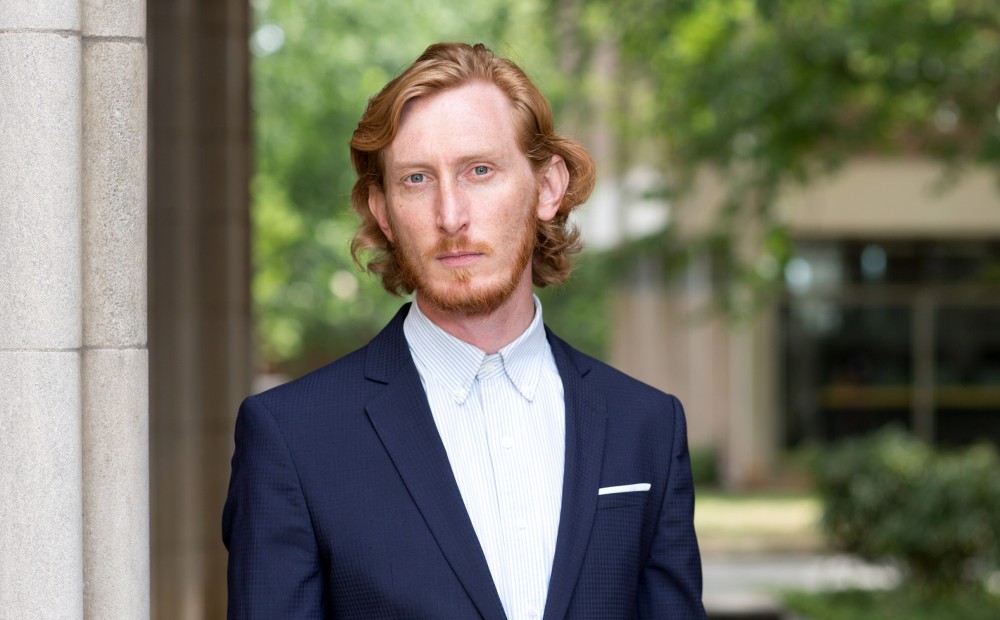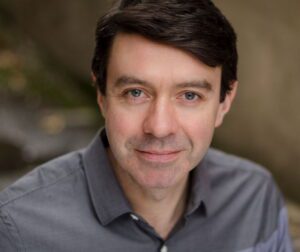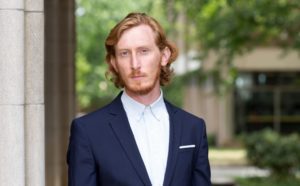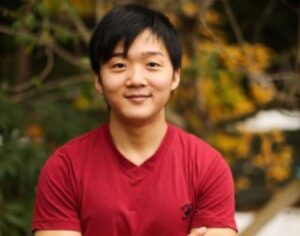The Senior Thesis is an integral part of every undergraduate’s journey at Princeton — an opportunity to dive deep into a topic of the student’s choosing and, under the guidance of a faculty advisor, develop a substantial independent project synthesizing their discoveries. This series celebrates the diversity of senior theses created by our Music Majors.
—
Gavin Steingo, Associate Professor of Music & Director of Undergraduate Studies
“For many of our students, the thesis becomes a way of charting a course of action for life. The students are not so interested in being a creator of some amazing product; rather, they want to learn how to understand and work with others.”
Gavin Steingo may be the newest Music Department faculty member featured in this series, but in his brief tenure thus far, he has nevertheless advised three remarkable theses. Steingo’s own work examines such topics as music and value, and indeed in each of his advisee’s theses such matters take center stage.
Below are three of Steingo’s treasured advisee stories: Kirsten Keels (’21), currently completing a Fulbright in Seoul, South Korea, on the relationship between Black People, Black music, and Korea; Maya Keren (’22), now a Brooklyn-based pianist, vocalist, composer, and songwriter; and Lou Chen (’19), Program Manager of Trenton Arts at Princeton.
Kirsten Keels (’21)
Consuming Korean Popular Music (Kpop): An Anthology of Experiences within Fan Communities
Steingo didn’t know much about K-pop prior to working with Kirsten Keels.
“I knew some of the main groups and I’d seen some of the videos, but it was through Kirsten that I learned about the incredibly impassioned, multicultural, multiracial, international fandom around Kpop.”
Keels, a fan of the genre herself, was both profoundly invested in and uniquely situated to study the fandom in which she had found such a strong community. Steingo knew it would be a thesis that, though unconventional, would nevertheless hold great personal value for his advisee.
But it was important to Steingo that he provide Keels with the tools she would need to structure her research so that this passion piece would also ultimately prove a strong work of scholarly literature.
“My job as advisor is to give students the tools to do their research. Then they do the work.”
Over the ensuing months, Keels embarked on an extended ethnographic research process under Steingo’s supervision. There would be challenges: K-pop is often devalued as a genre in society, and fans respond with a general reluctance to open up about what the genre means to them. Nevertheless, through a series of astonishingly intimate and open conversations with fellow K-pop fans, Keels was able to craft a nuanced anthology of fan experiences. As one fan, a young woman, shared: “I’m a human second, and a Kpop fan first.”
Today, Keels continues her work on Korean culture: she is currently on a Fulbright exploring Blackness in Korean culture.
Maya Keren (’22)
Careful In The Sun/Experiments In Gathering: Environing People and Sound Within the Collective
Like Keels, Maya Keren (’22) similarly approached their thesis not as a means to an end, but rather as a way of charting a course of action for life. Their thesis was, to a certain extent, unclassifiable, incorporating elements of composition and scholarship in equal parts and defying conventions of what a “typical” Music Major thesis could be.
“Maya’s thesis was at once theoretical, analytical, and creative and compositional. You can’t say whether they’re a music scholar or composer; they’re both and neither.”
Keren’s thesis took multiple forms, but its basis was a semester-long series of “experiments in gathering”: as one example, Keren built a structure akin to a sukkah, filled it with objects that held meaning for them both personally and intellectually, and gathered in the space with like-minded people to commune through sound and music-making.
“Anything like a reified product would have been anathema to how Maya thinks about what art is. Their thesis was a beautiful process; it wasn’t a thing.”
Keren’s thesis was an extension of their commitment to the social aspect of music making — an opportunity to devote time and resources to a firm conviction held by Keren about the value of music, sound, and community.
Lou Chen (’19)
Reconfiguring the Double Bind: The Individual and the Collective in Kendrick Lamar’s “DAMN.”
Lou Chen is a familiar name on and off campus these days. Chen is a conductor and the director of Trenton Youth Orchestra, but he is also more broadly a musical activist who questions and resists gatekeeping systems and structures.
In a way, Chen’s senior thesis was unexpected: a classical musician performing an in-depth analysis of Kendrick Lamar’s “DAMN.” But Chen, who from his youth was steeped in Western classical music traditions, had encountered skepticism from fellow classical musicians toward hip-hop, a puzzling dynamic that he found uncomfortable and, well, elitist. He decided to use his thesis as an opportunity to step outside of his comfort zone — to challenge his own restrictive view of hip-hop and build a new framework of understanding for himself. It wasn’t novel work — there’s almost a cottage industry of Kendrick Lamar studies among music scholars — but it was foundational for the work that Chen would go on to do.
“Lou’s thesis rivals the most impressive professional scholarship on the topic of Kendrick Lamar.”
Today, as Program Manager of Trenton Arts at Princeton (in addition to TYO director), Chen is leading a new generation through genre-crossing arts education and immersion. He feels a responsibility to represent artistic traditions intentionally and always with the respect and dignity that they deserve. First, though, he had to do the work within himself — beginning with his senior thesis.
“Working with a student over the course of a year, you really do develop quite a relationship. I keep in touch with Lou, Kirsten, and Maya. And Lou works down the hall from me! We try to get dinner together at least a couple of times a semester.”
In Other News

What Six Senior Music Majors’ Say About Their Theses
May 16, 2024
As we near the final weeks of spring semester and anticipated graduation for the Class of 2024, the Music Department asked six Senior Music Majors to expand on their creative thesis, as well as share words of encouragement to future students.
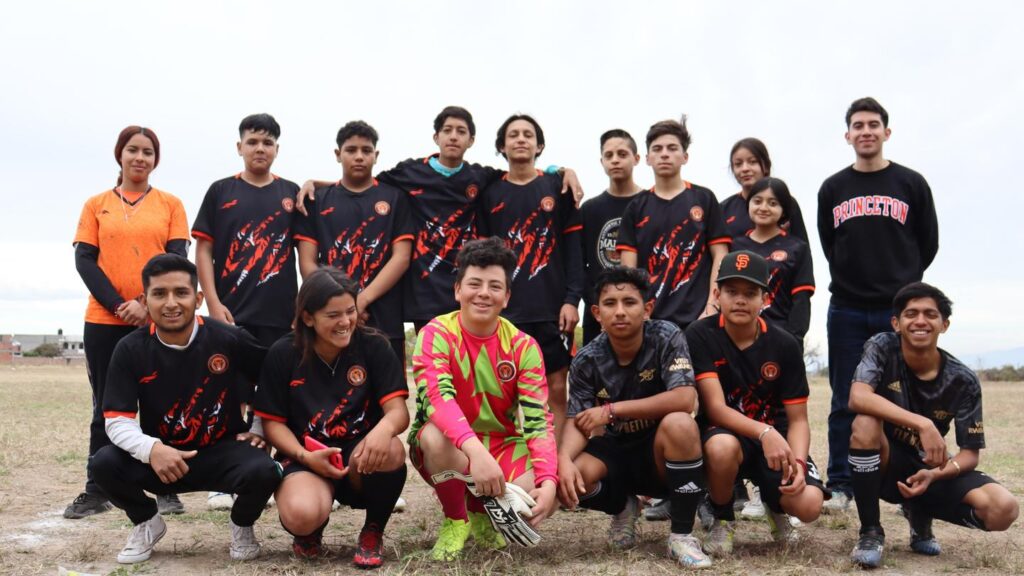
It takes a village: Projects for Peace winner Carlos Cortez ’24 and the people of Zináparo bring music and soccer to their youth
Jan 23, 2024
It takes a village: Projects for Peace winner Carlos Cortez ’24 and the people of Zináparo bring music and soccer to their youth
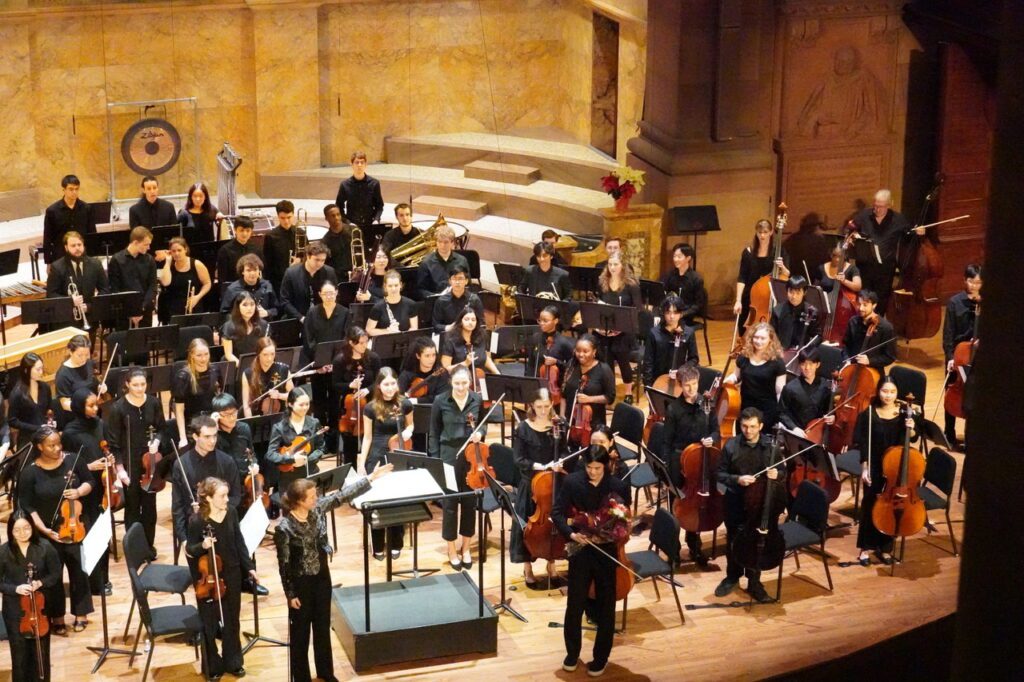
Student Perspectives: The Musical Odyssey of Princeton’s Adrian Thananopavarn
Jan 18, 2024
Adrian P. Thananopavarn ’24, Math major with certificates in Computer Science and Music Composition, premieres “March of Dusk” with Princeton University Sinfonia

